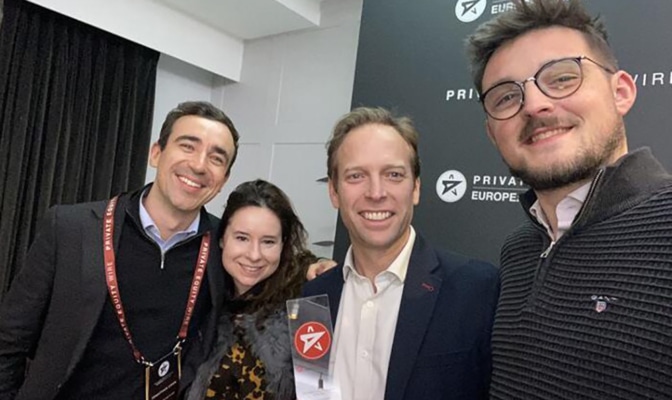Britain’s growth opportunity is staring us in the face
Share on LinkedIn

I had a creative moment thanks to the creativity of the Hurst Hookers – my village crocheting club.
For a few years now this group of amazing women have been working away to create fabulous displays. Rather like Banksy’s street art, these things just appear. Often they make the news.
Every time there is a new display, like this one in the cover photo done for the Olympics – which has been a great Games by the way, so well done Paris – I am reminded how immensely talented and creative Britain is.
I see it every day in the Havas Village London, H/Advisors’ global headquarters where over 1,000 people beaver away helping brands, companies and individuals come up with new communications ideas, advertising campaigns and PR strategies.
We are good at this in Britain – creativity. Our advertising and communications industries generate revenues of over £40 billion a year. Only this week a competitor of ours – who I won’t mention – was valued at a staggering £1.3 billion.
So why can’t we do more to harness this creative Britain for global domination across more industries, and to inspire and kick start the economic growth we so sorely need?
We have many industries ripe for more success. I am thinking of film and television. Sports. Advanced manufacturing. Parts of agriculture (especially diversification concepts – think Daylesford). Hospitality, festivals and events. Music. Journalism. Environmental consultancy. Even finance to an extent.
Of course we are doing a lot with these industries but we need to do much more. Rather than try to conjure economic growth from places and sectors that need a lot of public support and backing, why not start with what’s already thriving and right in front of us?
Regulation and tax are obviously a big part of the core agenda to foster entrepreneurship and growth. Another is about championing a new culture of entrepreneurship similar to that in the US.
In America there tends to be a desire to scale ambitiously, moving from a small family business or an impressive individual side hustle, into a bigger business quickly. Capital is available because investors are familiar with the upside opportunity and are prepared to take more risk. The Chapter 11 process offers confidence and protection.
Meanwhile entrepreneurs are happy to see failure – a business flop – as a genuine learning experience for their next venture, rather than a reason to stop trying and returning to salaried life. The 1987 movie Baby Boom captures the zeitgeist.
Fostering an ambitious, ‘can do’ culture among an already impressive creative population in Britain is an altogether cheaper and more achievable endeavour than trying to back certain industries with a track record of problems. Steel, for example, where we struggle to compete and it is riddled with politics and public money bail outs.
One simple idea would be a nationwide campaign led by the Department for Digital, Culture, Media & Sport – perhaps with the Business Growth Fund and the British Venture Capital Association to bring in the capital side – that encourages those with creative ideas, start-ups, and successful domestic businesses to keep going and push for expansion, whether outside their village, town or even outside Britain.
Knitting economic growth together is never easy for a Government but looking to our existing creative industries and talents as a source of inspiration and innovation would be a sensible exercise. Getting more of this creative nation to flourish is an obvious growth opportunity.
And you never know, maybe we will see the Hurst Hookers break America some day!






